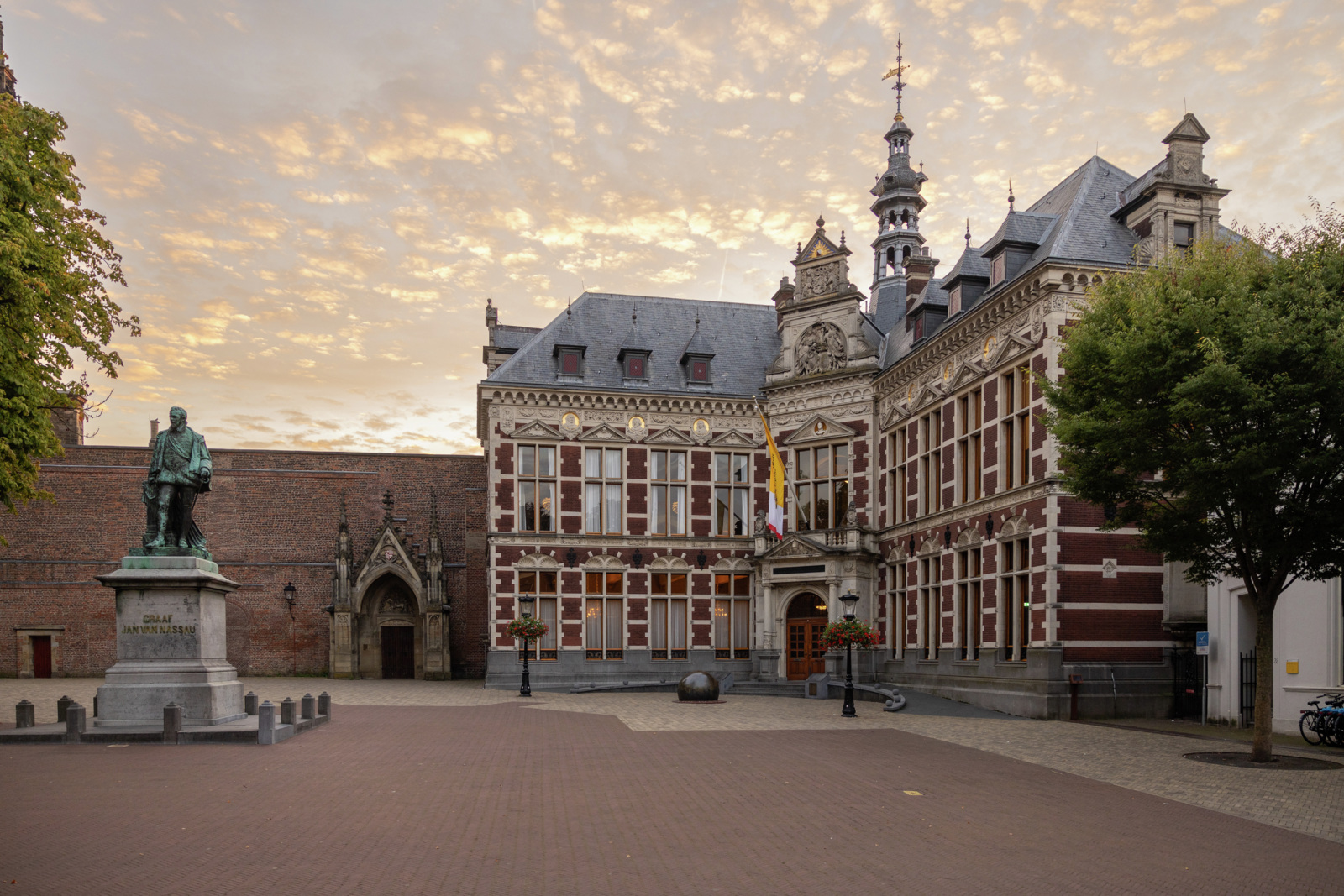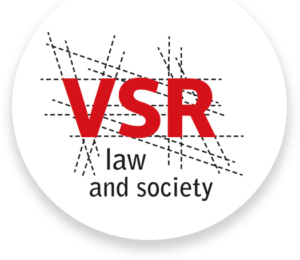Recht in een transnationale context / Law in a transnational context
Wasserburg Rindern
Wasserburgallee 120, 47533 Kleve, Duitsland, tel 0049-2821-7321-0
(www.wasserburg-rindern.de )
Maandag 14 december
10.15-11.15 Ontvangst, inschrijving, koffie
11.15-13.00 Plenaire sessie: TRANSNATIONAL LEGAL SPACE OR LEGAL PLURALISM?
Prof dr Thomas Faist
(Professor of Transnational & Development Studies Centre on Migration, Citizenship and Development (COMCAD) Department of Sociology, Bielefeld University, Germany)
Transnational social space: new ways for the study of social and socio-legal issues
Prof dr Keebet von Benda-Beckmann
(Max-Planck-Institut für ethnologische Forschung Max Planck Institute for Social Anthropology, Halle, Germany)
Grounding transnational legal space
13.15-14.15 Lunch
14.15-15.45 Keuze uit twee parallelle werkgroepen
1) TRANSNATIONAL FAMILIES AND LAW
Organisers: Betty de Hart and Wibo van Rossum (B.deHart@jur.ru.nl)
Globalization, migration, and an increase in the number of ‘transnational families’ go together and are intertwined. ‘Transnational families’ are families that have ties with two or more different legal cultures. They may be ‘culturally mixed’ (partners from two different cultures), may have migrated, or may orient themselves to a religious legal culture in addition to a national legal system.
To maintain transnational family ties will have advantages, but will also inevitably bring legal problems. Rules of private international law may differ from one legal system to another, while at the same time interpretations of legal rules and their precise meaning may be uncertain. And sometimes legal cultures clash.
This workshop addresses some of the issues that arise when transnational families have to deal with law from different legal cultures. The main focus is empirical and on the actors (family members, lawyers, judges) involved.
Nahda Shehada (International Institute of Social Studies ISS)
The portrayal of Islamic Family Law in Europe.
Veerle van den Eeckhout (Leiden University)
Developments in European international family law: a liberal approach to transnational situations
Wibo Van Rossum (University Utrecht)
Dutch Legal Professionals and the ‘Culture Clash’ in International Parental Child Abduction
Iris Sportel (Radboud University Nijmegen)
Transnational Divorce in Dutch-Moroccan Families
2) CROSSING BORDERS: GERMAN AND DUTCH SOCIO-LEGAL STUDIES ON TECHNOLOGY REGULATION
Convenors: Dr. Bärbel Dorbeck-Jung (b.r.dorbeck-jung@utwente.nl ,University of Twente, Netherlands) & Prof.Dr. Alfons Bora (bora@iwt.uni-bielefeld.de, University of Bielefeld, Germany)
It is striking that the socio-legal discipline has not yet paid much attention to the governance of new technologies, which increasingly attracts other social science scholars. This panel discusses Dutch and German research on regulatory governance of new technologies. It explores theoretical and empirical aspects of technology regulation. It deals with basic questions of innovation and risk regulation, as well as with regulatory problems in particular fields of technological development (nanotechnologies, medical technologies etc).
Marc Mölders (University of Bielefeld)
Thinking sooner of later. On the role of discourse learning in technology regulation
Nicolle Zeegers (University of Groningen)
Contribution of scientific experts to the regulation on human-animal hybrids in the UK
Roel Pieterman (Erasmus University Rotterdam)
Societal debate on nanotechnologies in the precautionary culture
Bärbel Dorbeck-Jung (University of Twente)
Why is nanotechnological regulation highly interesting for legal sociology?
15.45-16.15 theepauze
16.15-17.45 Keuze uit twee parallelle werkgroepen
3) REGULATION IN A TRANSNATIONAL CONTEXT
Chair: Tetty Havinga (T.Havinga@jur.ru.nl, Radboud University Nijmegen)
In our global world, many encounters and transactions cross national borders. This also applies to business transactions. On the shelves of Dutch supermarkets we find Thai shrimps, Australian wine and Kenyan mango. Multinational corporations, such as Shell and Unilever, operate in many countries and continents. Dutch industries relocate activities such as production, helpdesk or data-management to other parts of the world. But also anti-globalists, green organizations and human rights activists operate on a transnational scale. This session deals with questions such as: How are transnational encounters and transactions regulated? Which law is applied (domestic/international; public/private)? How are disputes dealt with? What are the consequences for the distribution of power between industry and civil society, between rich and poor countries, between national state and international organisations?
Michiel Köhne (Wageningen University)
The making and use of private regulations in tropical commodity production chains
Jaap van der Kloet (Radboud University Nijmegen)
Transnational food safety regulation: (mis)matching global norms and local interests
Antoinette Vlieger (University of Amsterdam)
Implementation of rules by governments is not to be expected
4) RECHT VAN ONDEROP
Coördinatie: Heleen Weijers en Marc Hertogh (Rijksuniversiteit Groningen)
Afgelopen voorjaar is het idee geboren voor een nieuw boek met als werktitel: “Het recht van onderop: inzichten en uitkomsten van de Rechtssociologie”. Het doel van dit boek is het bieden van een helder en compleet overzicht van de huidige stand van de kennis op het terrein van de Rechtssociologie. In deze bundel zullen voor een breed publiek de belangrijkste ideeën en bevindingen uit de Rechtssociologie worden gepresenteerd. Tijdens deze sessie zullen de redacteuren van het boek de opzet van dit project nader toelichten en zullen een aantal auteurs de eerste versies van hun hoofdstuk presenteren.
1. Marc Hertogh & Heleen Weyers
2. Marijke ter Voert
3. Joris Kocken
4. Marnix Croes
Vanaf 17.45 Borrel
19.00 Diner
Vraaggesprek met Freek Bruinsma door Ashley Terlouw
21.00 Film
Dinsdag 15 december
Vanaf 7.30 Ontbijt
9.00-9.45 VSR ledenvergadering
10.00-11.30 Keuze uit drie parallelle werkgroepen
5) DE ROL VAN JURISTEN BIJ TOTSTANDKOMING EN GEBRUIK VAN TRANSNATIONAAL RECHT
Coördinatie: Alex Jettinghoff (a.jettinghoff@jur.ru.nl, Radboud Universiteit Nijmegen)
Veel transnationale politieke organisaties, zoals de Europese Unie, de World Trade Organization, de Verenigde Naties en ook NGO’s als Amnesty International, hebben een sterk juridisch karakter, omdat ze vooral gericht zijn op regulering en de handhaving ervan. Daarom kunnen juristen (of althans juridische experts) in deze contexten een belangrijke rol spelen. Het is de bedoeling de invloed van juristen in dit type contexten te verkennen.
Berry Tholen (Radboud Universiteit Nijmegen)
Nationale wetgevingsjuristen en de implementatie van Europees recht
Alex Jettinghoff (Radboud Universiteit Nijmegen)
Octrooi-juristen en de strijd om het Gemeenschapsoctrooi
6) BRINGING HUMAN RIGHTS HOME: THE POLITICS OF HUMAN RIGHTS IMPLEMENTATION
Chair: Barbara Oomen (b.oomen@roac.nl)
“Bringing human rights home” is the title of one of the few sociolegal publications on human rights implementation in Western countries. This particular work focuses primarily on the United Kingdom, where the adoption of the Human Rights Act led to calls for an own, “home-grown”, Bill of Rights.
This particular session aims to increase understanding of the way in which international human rights are “brought home” in countries like the Netherlands and Belgium: legally, but also in “framing” social problems and in the political debate. This raises questions like: How, when and by whom are human rights mobilized and to what effect? What is the role of ngo’s – who receive a great deal of attention in the comparative literature – and national human rights institutions in this field? What is the relationship between an expansion and institutionalization of the international human rights catalogue and an emphasis on “own, home-grown” rights and values? To what extent does explicit inclusion of international human rights in national legislation, eg in the Constitution, lead to an increase in rights consciousness and to larger social effects in this field?
One of the reasons for this session is the mandate of the Dutch Constitutional Review Commission, which has been asked to report upon the relationship between international human rights and those fundamental rights included in the Dutch Constitution, the influence of the international upon the national legal order and the relationship between “core constitutional values’ in the Netherlands and treaty obligations. In addition, the session takes place on the eve of the – potential – entry into force of the Lisbon Treaty and the EU Charter of Fundamental Rights.
Dr Q. Eijkman (Leiden University): Ethnic profiling in the Netherlands
Prof. E. Brems (U Gent): Creating added value through constitutional human rights provisions.
Prof. B. Oomen (Un. Of Amsterdam/Utrecht): Between a rock and a hard place: Christian gay rights organizations and the realization of human rights in the Netherlands
7) EMILE DURKHEIM
Coördinatie: Liesbeth Huppes, Robert Knegt en Agnes Schreiner (R.Knegt@uva.nl)
Important publications of Durkheim were translated and reprinted in the “Sixties”. Although Suicide and The Division of Labor got a lot of attention, The Elementary Forms of Religious Life was more or less neglected, even though this study reflects a thorough knowledge of the ethnological literature on Aboriginal culture.
Durkheim gives a description of labor relations and religious forms of life in terms of fixed patterns, but at the same time he is quite aware of the transitions that are taking place in his days and in the individualistic dynamism this purports. He seems, however, not able to reconcile these two ways of looking at the formative principles of communal life.
Durkheim’s conception of law differs strongly from Weber’s activistic and government oriented conception which shows more awareness of the fundamental change in the role of law in the welfare state. For Durkheim law is the direct expression of the social solidarity which generates from the religious and economic features of social life.
The study of Durkheim is of interest for the analysis of Transnational Legal Space because he describes the economical, societal and moral transitions that brought about the national state and because this view on social change does not give any function to law as formative principle for communal life. The focus of this session will be on an elaboration of the characteristic features of Durkheim’s theory and the relevance of these for the theme of the congress.
Robert Knegt, Durkheim on the contractual nature of labor relations
Durkheim’s insistence on the ‘non-contractual elements of contract’ underlines the extent to which current (legal) individualism is a structural achievement of society. If he is right that interdependency precedes exchange, what are the preconditions of a contractual conception of labor relations? To what extent can the moral elements that he attached to the institution of contract, be part of a transnational legal space?
Liesbeth Huppes, Durkheim on the relation between religion and science
Durkheim rejects Comte’s view that as a result of the evolution of society religion will be replaced by science. For Durkheim there is no fundamental difference between religion and science. Her critical review of Durkheim on this issue will clarify the relation between religion, science and law in the context of national unity in comparison with a context in which no need for such a unity is felt.
Agnes Schreiner will discuss The Elementary Forms of Religious Life where Durkheim qualifies the life of the Australian Indigenous People as “religious” and takes that life of Aborigines as described by Spencer and Gullen as “elementary form”. She will point out that Durkeim’s thinking is European and modern at the same time. Thereby, she will answer the question how far one may qualify Durkheim as a French thinker, since Hofstede & Hofstede in Cultures and Organizations argue that Max Weber is a German one.
Barbara Willenbacher, The influence of Durkheims compatriots on Durkheims theories is rarely assessed and documented. Leon Bourgeois invoked a quasi contractual formulation of the social obligation arising from the fact of social solidarity and also pleaded for a legitimated state intervention between Liberalism and Socialism based upon reconciliation of social moralism and social scientism. The ideology of the third French republic influenced as well the lawyers like Leon Duguit, a friend of Durkheim who considered the idea of solidarity as a juridico-social dogma.
11.30-12.00 Koffiepauze
12.00-13.00 Afsluitende plenaire sessie: TRANSNATIONALITEIT: EEN ZINVOL PERSPECTIEF VOOR DE RECHTSSOCIOLOGIE?
Een aantal deelnemers/sessievoorzitters geven hun oordeel na de diverse discussies en werkgroepen. Voertaal van deze bijeenkomst is wellicht Engels (indien er niet-Nederlandstaligen aanwezig zijn).
13.00 Lunch
14.15 Rondleiding Museum Kurhaus Kleve
(http://www.museumkurhaus.de/de/index.html )


